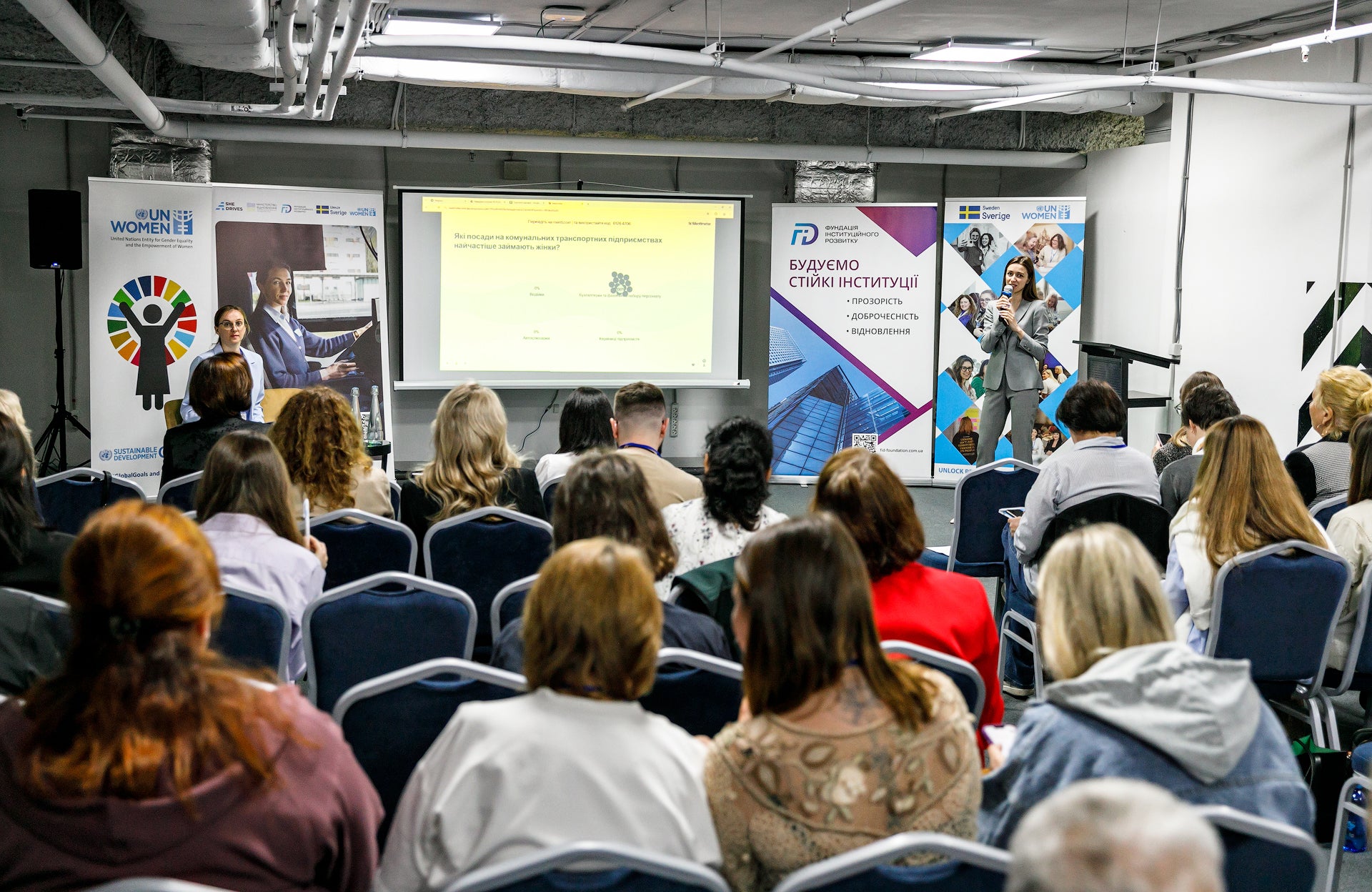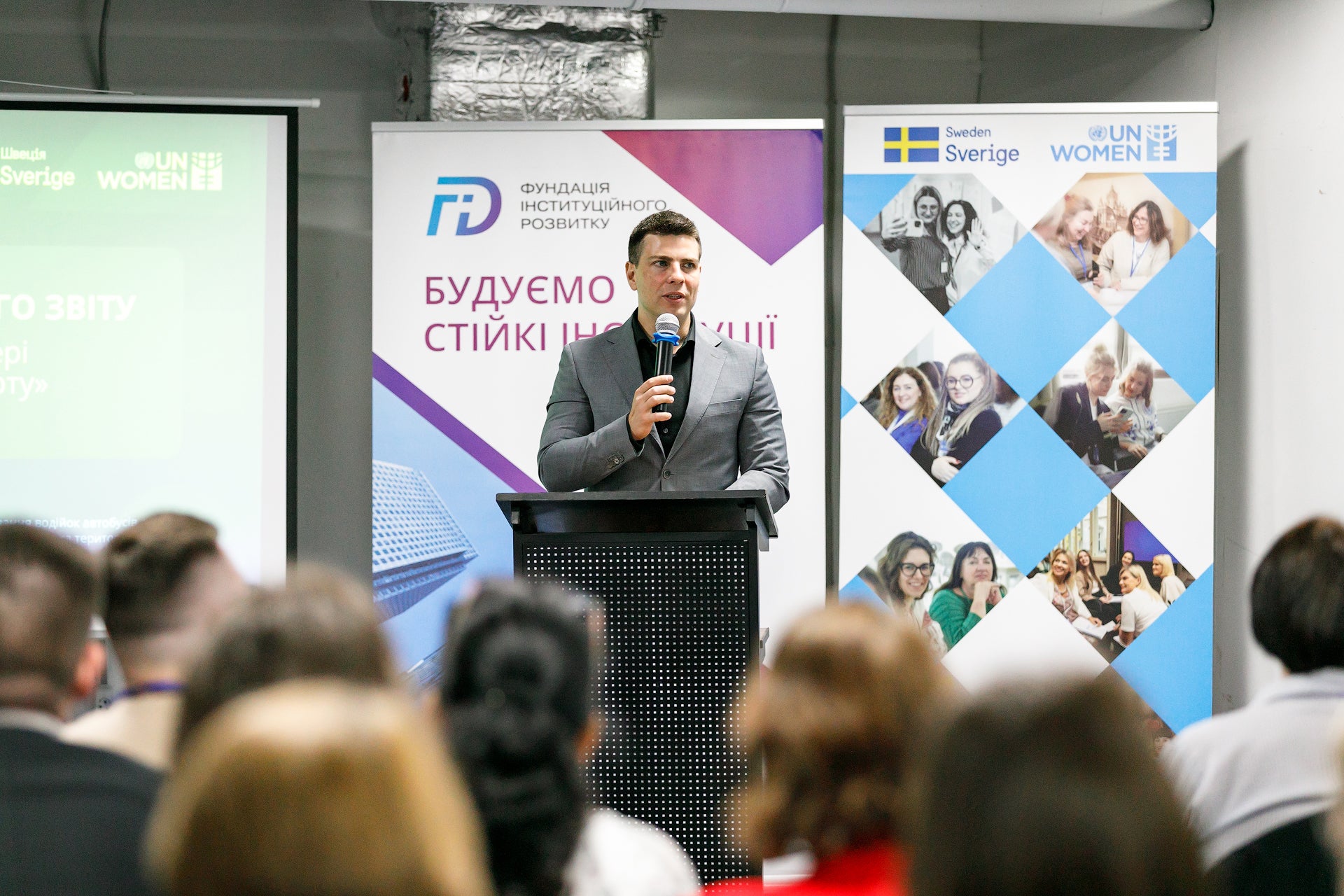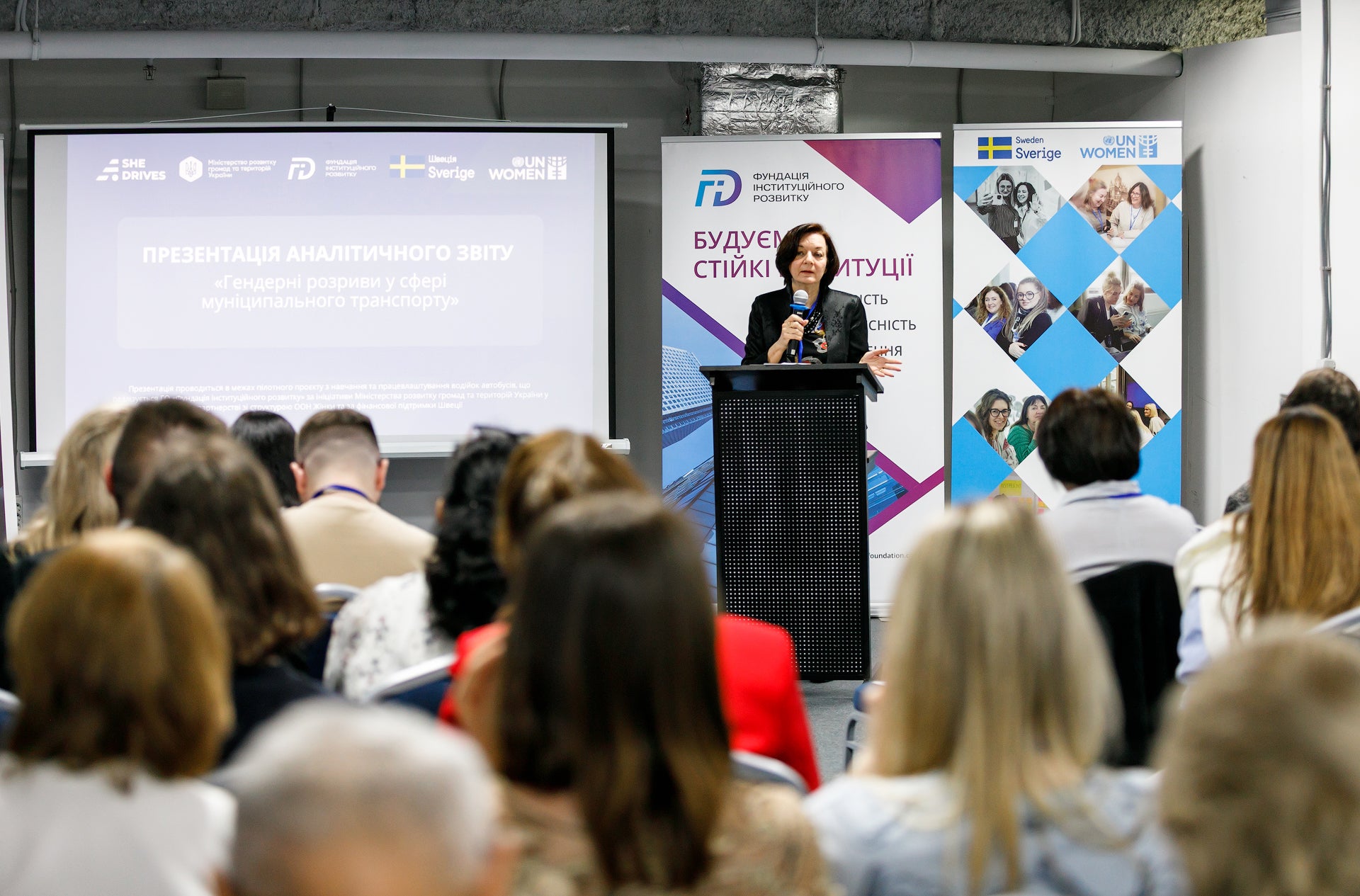“Gender Gaps in the Municipal Transport Sector”: research presented
Date:

Presentation of the research "Gender Gaps in the Municipal Transport Sector". Photo: She Drives/Bohdan Poshyvailo
The She Drives project conducted the study "Gender Gaps in the Municipal Transport Sector" with the support of the Ministry for Development of Communities and Territories of Ukraine.
This is the first study in Ukraine focused on analyzing the factors that contribute to gender gaps in the field of municipal transport. The study was presented on May 5 in Kyiv. The event was attended by Serhiy Derkach, the Deputy Minister for Development of Communities and Territories of Ukraine; Julia Broussard, the Deputy UN Women Representative in Ukraine; representatives from the Foundation for Institutional Development; participants from the She Drives project; as well as representatives from municipal enterprises, private transport companies, public organizations, and international partners.

Serhiy Derkach, the Deputy Minister for Development of Communities and Territories of Ukraine. Photo: She Drives/Bohdan Poshyvailo
"This study is the first of its kind to assess gender gaps in municipal transport, supported by the Ministry. It is extremely important and valuable because ensuring equal participation and opportunities for both men and women in the transport sector, as well as in accessing its services, is crucial for economic development and recovery. The results of this study will be vital for creating a comprehensive policy aimed at attracting women to the transport sector and adapting workplaces accordingly," emphasized Serhiy Derkach during his speech.

Julia Broussard, the Deputy UN Women Representative in Ukraine. Photo: She Drives/Bohdan Poshyvailo
“The report's findings are both sobering and hopeful. Women face significant challenges, including lower wages, limited access to social protections, unsafe working conditions, and deep-rooted gender stereotypes. However, there are also promising examples of positive change, such as businesses creating opportunities for women, evolving recruitment practices, and courageous individuals from various sectors stepping up as leaders and paving the way forward. As partners in government, civil society, and international organizations, we share a collective responsibility to act based on this evidence. UN Women is prepared to continue supporting Ukraine on this journey,” noted Julia Broussard in her welcoming speech.
What was analyzed during the study?
- Professional needs of women: prospects for self-realization, availability of appropriate knowledge and skills for employment, opportunities to obtain appropriate education, equal access to the profession for women and men, and other aspects.
- Level of resource availability: awareness of the possibility of joining the industry, level of pay, possibility of vacations, and sick leave as needed, etc.
- Career opportunities: career growth opportunities, employment levels, opportunities to hold leadership positions, and the right to influence the implementation of reforms in the field of municipal transport.
The study involved both desk and empirical analysis, including an examination of regulatory and legal acts, as well as a gender analysis of enterprise activities in target regions using questionnaires, surveys, and interviews.
A total of nine utility companies from various regions of Ukraine took part in the study.
The main challenges in attracting women to the transport sector include:
- Security factors, particularly the impact of war conditions, as a critical factor.
- Possibility of obtaining sick leave and leave for women with children.
- Limited access to education–lack of professional training programs focused on women.
- Stereotypes about the role of women in the transport sector–the traditional perception of the driver's profession as "male" significantly narrows the opportunities for women.
- Lack of adapted working conditions–insufficient number of equipped places for rest and hygiene facilities.
Additionally, 70% of the women surveyed indicated that society perceives their professional activities as "atypical." They also highlighted the insufficient public support for women in the transportation sector.
The gender audit identified several key obstacles to women's employment. The most significant barrier is the inequality in access to infrastructure, affecting 70% of women. Additionally, 60% of women indicated that the lack of inclusive recreational areas that cater to both men and women is a major issue. Furthermore, 58% reported that neglecting hygiene needs is another important obstacle.
You can read the research at the link.
The project "Expanding the professional potential of women in the field of passenger transportation" is being implemented by the NGO Foundation for Institutional Development on the initiative of the Ministry for Development of Communities and Territories of Ukraine, in partnership with UN Women and under the financial support of Sweden.